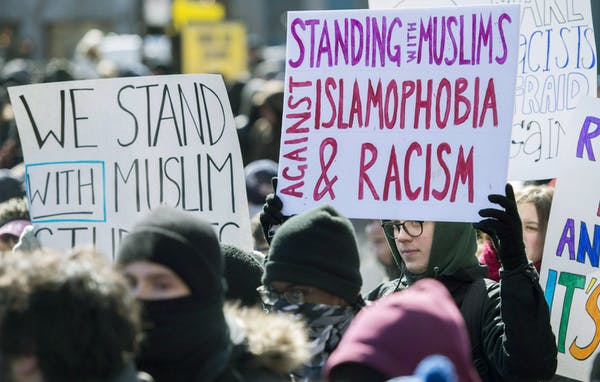The province of Alberta, Canada, has seen an increase in racially motivated attacks against Black Muslim women since December 2020. These attacks include both physical threats, verbals threats, and assaults, and have been largely occurring in the cities of Calgary and Edmonton. Whilst Edmonton Police have now made arrests in connections with these cases, the way these attacks have been handled by both politicians and law enforcement raises questions about what is Canada doing to tackle Islamophobic attacks in the country and whether more can be done1.
On the 8th December 2010, two Somali women (both of whom were wearing hijabs) were attacked outside of a shopping centre in south Edmonton, in what city police have classified as a “hate-motivated incident” and charged the individual in question2. Speaking anonymously as part of an online news conference, – hosted by the National Council of Canadian Muslims following the attacks – the daughter of one of the victims addressed the increase in racism and islamophobia her family has been facing in Alberta, and the impact this is having. “These men threatened the lives and safety of my mother and sister for being visibly Black and visibly Muslim” she said. “They shattered the illusion of our safety and made us feel like strangers in the only place we have ever known”3. Subsequent attacks have occurred in Alberta since December 8th. A week following the initial incident, a 23-year old Black woman wearing a hijab was attacked both verbally and physically at a transit station in the city, and in February two unrelated incidents on the same day occurred. Again, these were towards visible muslim women wearing hijabs and included verbal racist and Islamophobic rhetoric being used towards the women. More recently, in Calgary (the largest city in Alberta with approximately 5.2% of the cities population being Muslim4), a teenage girl was physically assaulted and her hijab forcibly removed. Fatema Abdalla, the communications coordinator for the National Council of Canadian Muslims publicly stated “it has been a very traumatic time for those victims as well as for the Muslim community at larger”5. The attacks on Muslim women, Abdalla went on to add “showcase how large of an issue this is” and there needs to be “action to stop street harassment and a municipal-provincial plan of action”.
Whilst the city of Edmonton’s mayor, Don Iveson, has stated the city has improved security around the transit stations, he believes there is also a larger and deeper problem at play within Alberta that needs to be addressed. For example, widespread protests against Covid-19 restrictions have occurred across Edmonton and Calgary, during which tiki torches (a racist symbol that was used by white nationalists during the deadly weekend in Charlottesville, Virginia in 2017) and the white nationalist group the “Proud Boys” were visibly present. Again, these have raised further concerns in regards to the prominence of racism in Alberta. Whilst Calgary city councillor Jyoti Gondek and Edmonton MLA Rakhi Pancholi referred to the protests as “a hate rally”6,7, the Edmonton police chief said the department has yet to unearth evidence hate crimes were committed. Instead, when speaking to reporters on March 2nd, he referred to the principle of “intent” being a key factor in legally determining whether the event can be classified as a hate crime, which he stated is not something that has been evidenced so far.
The frequency of attacks, in addition to the presence of racist symbols in recent Marches, has been met with calls for action, intervention, and solidarity from the wider Alberta community. Calls to denounce these events as “un-Albertan” has come from political leaders, however these have also been criticised as not being “enough”. Ifran Chaudhry, a researcher in hate crimes and the directer of the Office of Human Rights, Diversity and Equity at MacEwan University, has said it is critical for Canadians to come to terms with and address the bigotry and racism in their own communities8. Hannan Mohamud and Sarah Mushtaq, in an opinion piece for the Edmonton Journal, similarly echoed Chaudhry’s statement. For the authors, it is imperative that meaningful action, in addition to statements, is taken. Yet, despite Alberta being the first province to establish a provincial hate crimes unit in 2019 following the recommendation of the Taking Action Against Racism report, they argue no formal policy approach has been formed. Instead, they argue that Alberta’s lack of monitoring and documenting hate crimes, or reconciling its historical treatment of Black Muslim women, the message Alberta is sending to its marginalised communities is “hate crimes in Alberta are a part of life. Deal with it”9.
Sources
https://globalnews.ca/news/7721850/hate-crime-alberta-attacks-black-muslim-women/
https://globalnews.ca/news/7656391/rally-torch-march-protest-covid-19-restrictions-racism-alberta/
https://globalnews.ca/news/7836351/muslim-canadian-racist-attacks-alberta/
https://www.intrepidpodcast.com/podcast/2021/3/13/ep-150-attacks-in-edmonton-what-needs-to-be-done-to-counter-islamophobia






